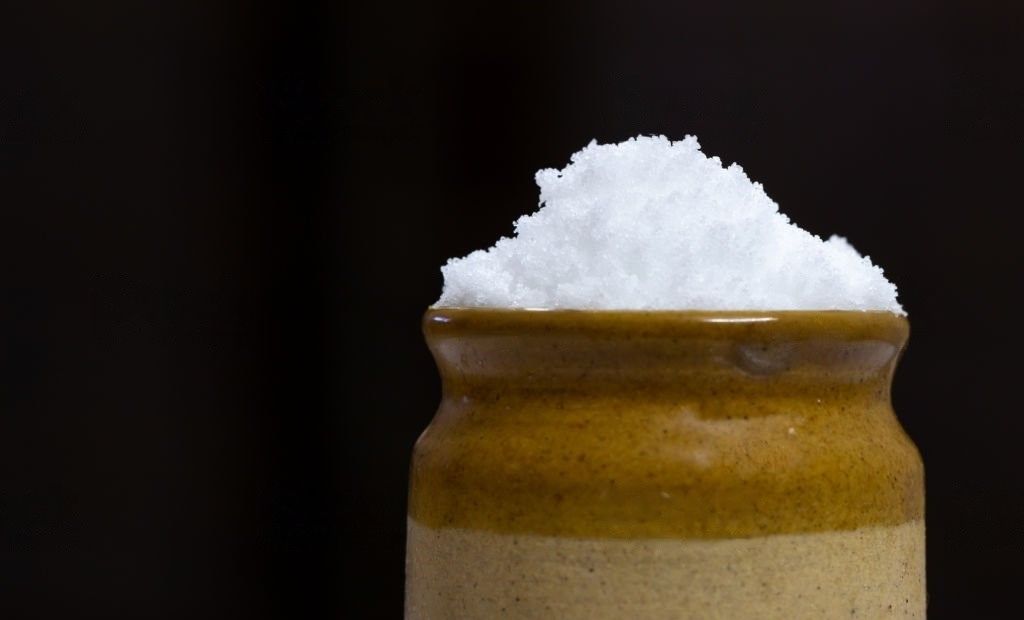Iodine Deficiency and Thyroid Health: Top 5 Foods that are rich in Iodine
Inadequate iodine levels can result in thyroid dysfunction, goiter, impaired cognition, developmental disorders, and heightened susceptibility to environmental toxins.

Iodine is an essential mineral that plays a crucial role in maintaining optimal thyroid health. The thyroid gland, located in the neck, relies on iodine to produce thyroid hormones, which are responsible for regulating metabolism and supporting various bodily functions. However, iodine deficiency remains a global health concern, affecting millions of people worldwide. In this blog, we will explore the importance of iodine for thyroid health, the consequences of iodine deficiency, and present the top five iodine-rich foods that can help combat this nutritional deficiency and support thyroid function.
The Vital Role of Iodine in Thyroid Health
Iodine is an integral component of thyroid hormones, namely thyroxine (T4) and triiodothyronine (T3). These hormones are essential for proper growth and development, metabolism regulation, and overall cellular function. When our bodies don't get enough iodine, the thyroid gland cannot produce enough thyroid hormones, leading to a condition called hypothyroidism.
Hypothyroidism can cause a variety of health issues, including fatigue, weight gain, cold sensitivity, hair loss, and cognitive impairment. Additionally, iodine deficiency during pregnancy and early childhood can result in irreversible neurological and developmental delays, making it vital to address iodine deficiency at all life stages.
Consequences of Iodine Deficiency
Iodine deficiency poses a significant public health concern, particularly in regions where iodine-rich foods are scarce. The consequences of iodine deficiency can be severe and affect various aspects of human health:
- Thyroid Dysfunction: As mentioned earlier, inadequate iodine intake leads to reduced thyroid hormone production, resulting in hypothyroidism and related symptoms.
- Goiter: A visible enlargement of the thyroid gland, known as a goiter, is a classic sign of iodine deficiency. The thyroid enlarges in an attempt to compensate for the lack of iodine.
- Cognitive Impairment: Iodine deficiency during pregnancy and infancy can impair brain development, leading to cognitive and intellectual disabilities.
- Developmental Disorders: Children born to iodine-deficient mothers may suffer from stunted growth and developmental delays.
- Increased Vulnerability to Environmental Toxins: Iodine deficiency can make individuals more susceptible to the negative effects of certain environmental toxins, particularly those that affect the thyroid.
Top 5 Iodine-Rich Foods to Support Thyroid Health
1.Seafood & Seaweed:
While seaweeds are not commonly consumed in traditional Indian cuisine, seafood offers a variety of iodine-rich options. Indian coastal regions are abundant in seafood varieties that can contribute to adequate iodine intake. Some iodine-rich seafood options include:
- Fish: Indian cuisine offers a wide range of fish varieties, such as mackerel, sardines, and pomfret, which are excellent sources of iodine.
- Shrimp: Shrimp, also known as prawns, are commonly used in Indian dishes and provide a good amount of iodine.
- Crab: Crab dishes, popular in coastal regions, offer a delicious iodine-rich option for seafood enthusiasts.
2. Dairy Products:
Dairy products, such as milk, cheese, and yogurt, can be good sources of iodine, as iodine is often added to animal feed and then transferred to dairy products. Choosing iodine-fortified dairy products can contribute to meeting your iodine requirements.
- Milk: Milk, a staple in Indian households, can provide iodine if the cows' or buffaloes' feed contains iodine supplements.
- Yogurt: Yogurt, commonly consumed as a side dish or in various preparations, can also contribute to iodine intake if made from iodine-fortified milk.
3. Eggs:
Eggs contain iodine, with the amount varying depending on the iodine content of the hens' feed. Including eggs in your diet, especially those from hens fed with iodine-rich diets, can be beneficial for thyroid health.
4. Iodized salt:
Iodized salt is a common kitchen staple that has been fortified with iodine to combat iodine deficiency. Replacing regular salt with iodized salt in cooking and seasoning can be an easy way to boost iodine intake.
SUMMARY
Iodine is a vital mineral that plays a crucial role in supporting thyroid health and overall well-being. Iodine deficiency can lead to thyroid dysfunction, goiter, cognitive impairment, developmental disorders, and increased vulnerability to environmental toxins. Including iodine-rich foods in our diet is essential to prevent and address iodine deficiency. Seaweed, fish and seafood, dairy products, eggs, and iodized salt are among the top five iodine-rich foods that can help maintain optimal thyroid function and support overall health.
Jayti Shah is a Clinical Nutritionist with a master's degree in Clinical Nutrition and Dietetics. She is a member of the Indian Dietetic Association (IDA). Over the last 9 years, she has helped 400 clients in their clinical and weight loss journeys. She works with SocialBoat as a nutrition consultant.
At SocialBoat, we offer custom diet plans and guided workouts to help you achieve your goals in a 360-degree approach. Our gamified experience ensures that you don’t find workouts boring and we reward you for being consistent with your efforts.

REFERENCES
- Bath, S. C. et al. (2019). Iodine concentration of milk-alternative drinks available in the UK in comparison with cows' milk. British Journal of Nutrition, 121(10), 1169-1174.
- De Groot, L. et al. (2019). Endocrinology in Pregnancy: Physiology, Pathophysiology, and Clinical Management (2nd ed.). John Wiley & Sons.
- Zimmermann, M. B. et al. (2016). Iodine deficiency. Nature Reviews Disease Primers, 2, 16076.
- World Health Organization (WHO). (2007). Assessment of Iodine Deficiency Disorders and Monitoring Their Elimination: A Guide for Programme Managers (3rd ed.). WHO Press.
- Yang, R. et al. (2018). Iodine in Excess in Aquaculture Systems: Occurrence, Adsorption Mechanism, and Management. Environmental Science & Technology, 52(5), 2901-2910.
